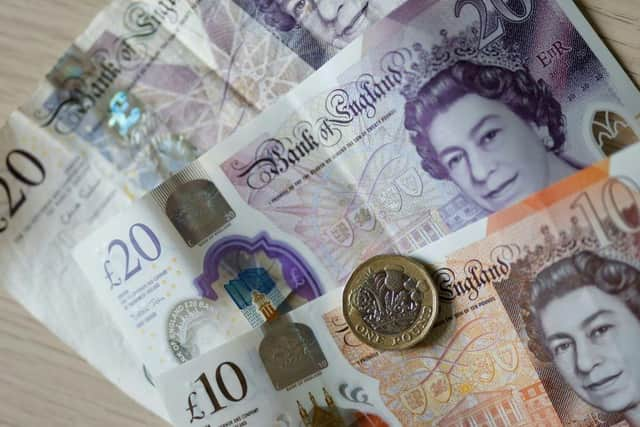Digital pound: Bank of England latest on timing - what is it and what it means for you
and live on Freeview channel 276
The Treasury and the Bank of England were set to formally begin a consultation for the digital currency, on Tuesday, February 7. However, the institutions say the digital pound will not be built until at least 2025.
Prime Minister Rishi Sunak asked the Bank of England to look into backing a digital currency in 2021 when he was chancellor.
Advertisement
Hide AdAdvertisement
Hide AdDigital currency has become popular in recent years with crypto currencies such as Bitcoin proving popular. These currencies, not backed by state governments, can be unpredictable with their value often going up and down.
While a digital pound would use similar technology to other crypto currencies, it would be more stable. For example, 10 digital pounds would always be worth £10 in cash.
Chancellor Jeremy Hunt said the central-bank digital currency could be a new "trusted and accessible" way for people to pay. A consultation with the public on a digital currency will run until June.
Bank of England Governor Andrew Bailey in a statement: “As the world around us and the way we pay for things becomes more digitised, the case for a digital pound in the future continues to grow. A digital pound would provide a new way to pay, help businesses, maintain trust in money and better protect financial stability."
What would a digital pound look like?
Advertisement
Hide AdAdvertisement
Hide AdA digital pound would be issued by the Bank of England, and neither the government or the central bank would have access to personal data. It would be accessed through digital wallets on devices such as smartphones or smartcards.
If introduced, the digital pound could be used to make payments in person or online. It would be interchangeable with cash and bank deposits and payments made with the digital currency would carry no interest.
A digital pound would be subject to rigorous standards of privacy and data protection. There would be initial limits on how much digital currency businesses or individuals could have.


Do other countries have digital currency?
Countries around the world, including the US, China and the Eurozone, are considering similar proposals. Some countries, including China, India, Nigeria and the Bahamas, have already rolled out digital currencies.
Comment Guidelines
National World encourages reader discussion on our stories. User feedback, insights and back-and-forth exchanges add a rich layer of context to reporting. Please review our Community Guidelines before commenting.
